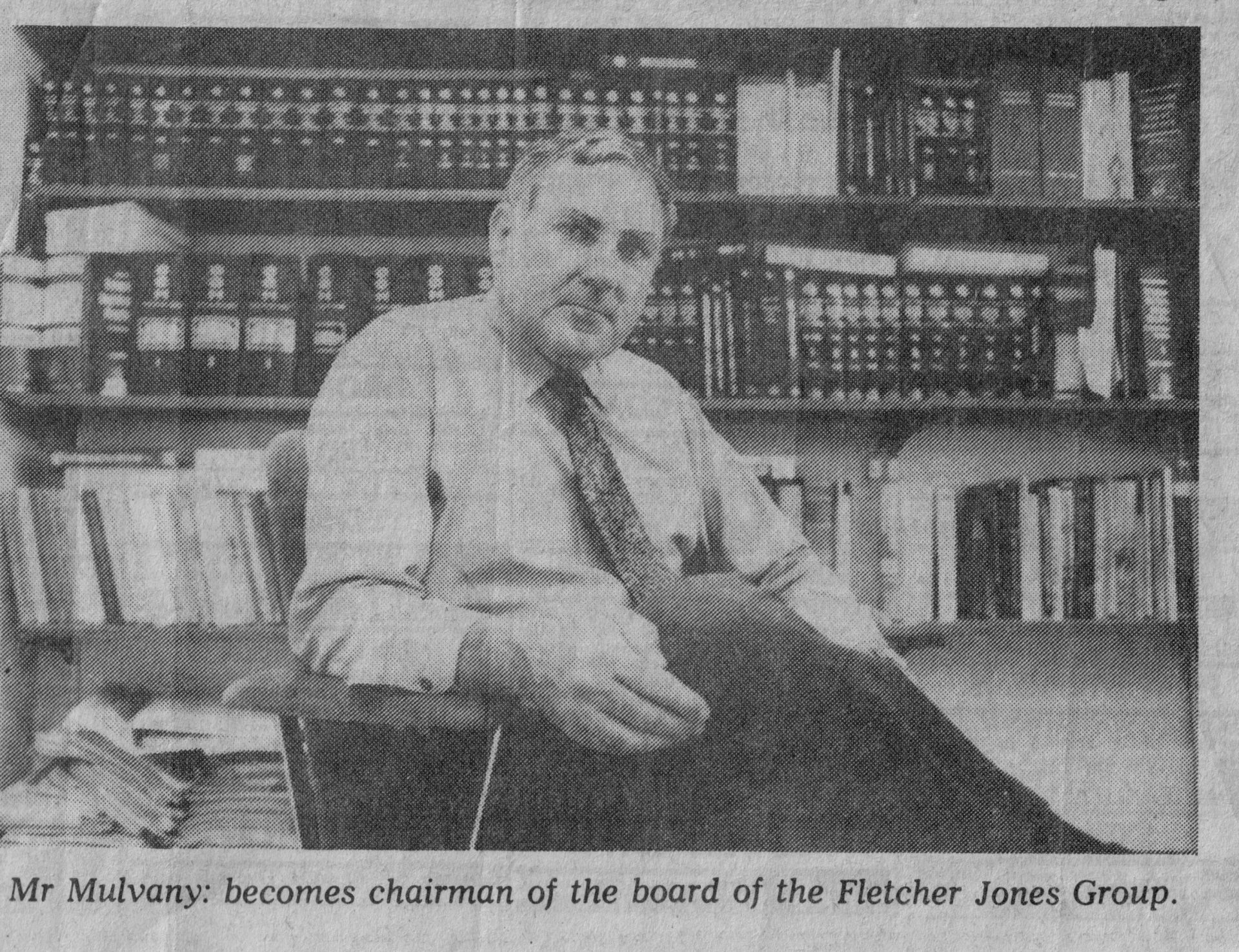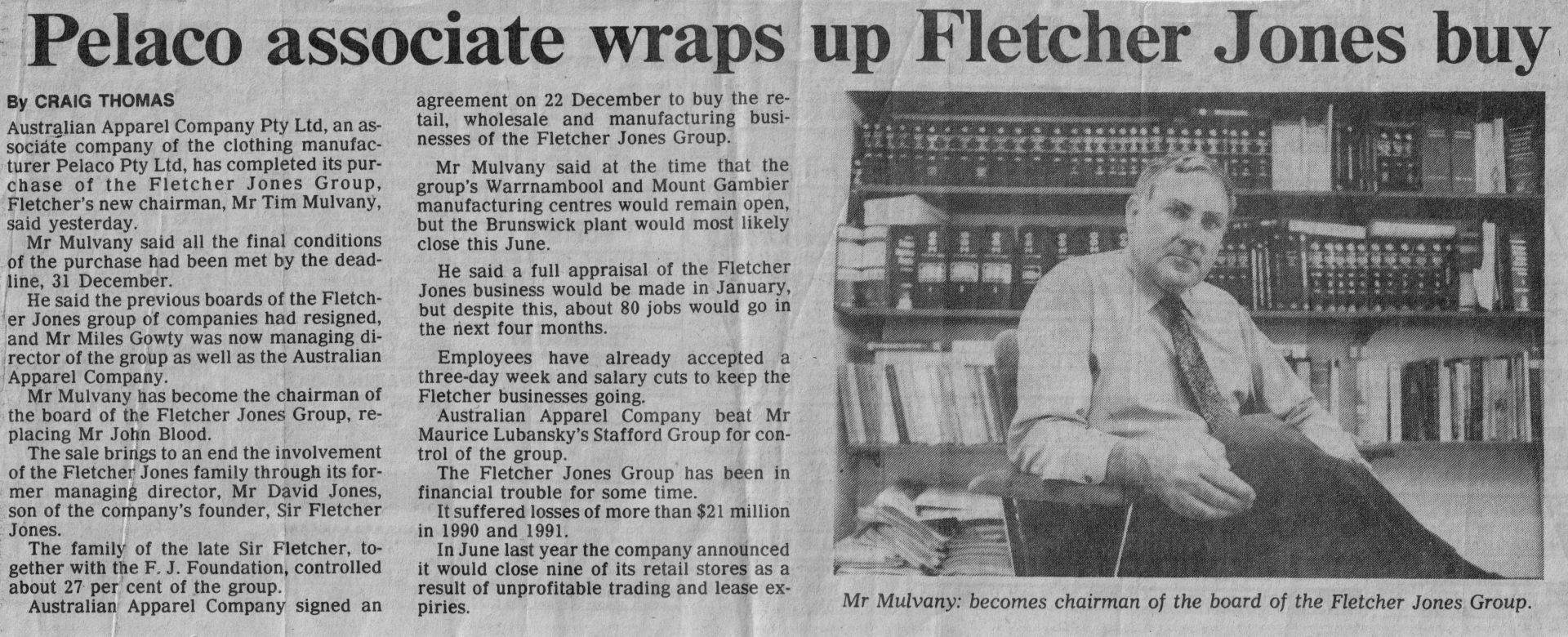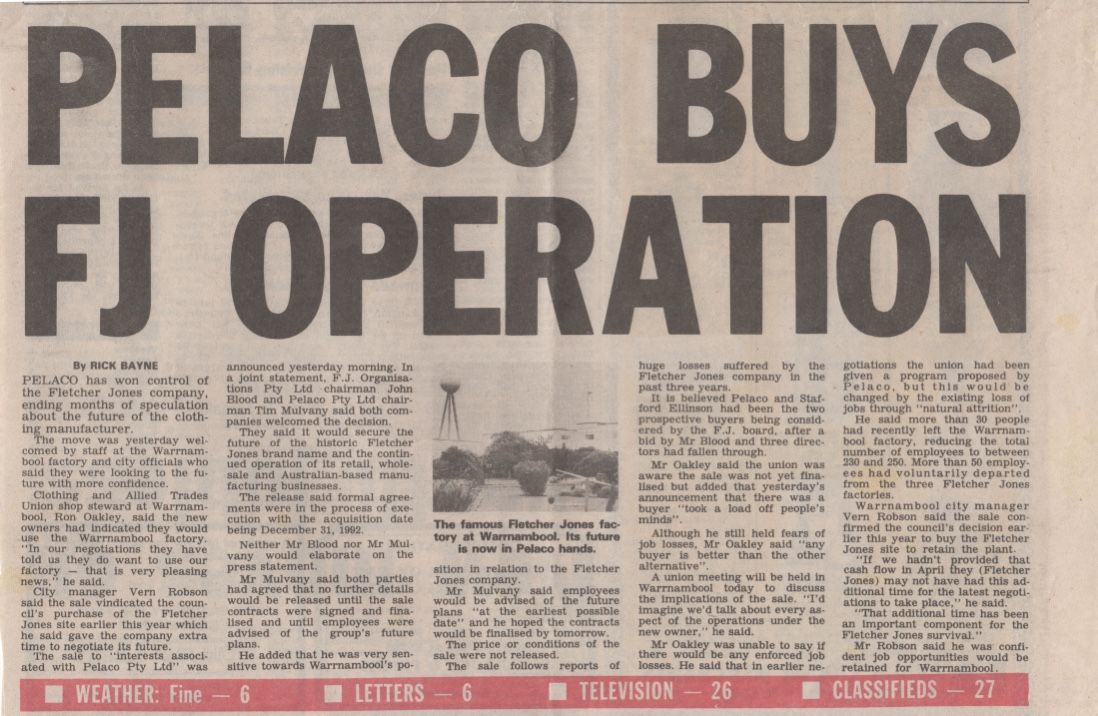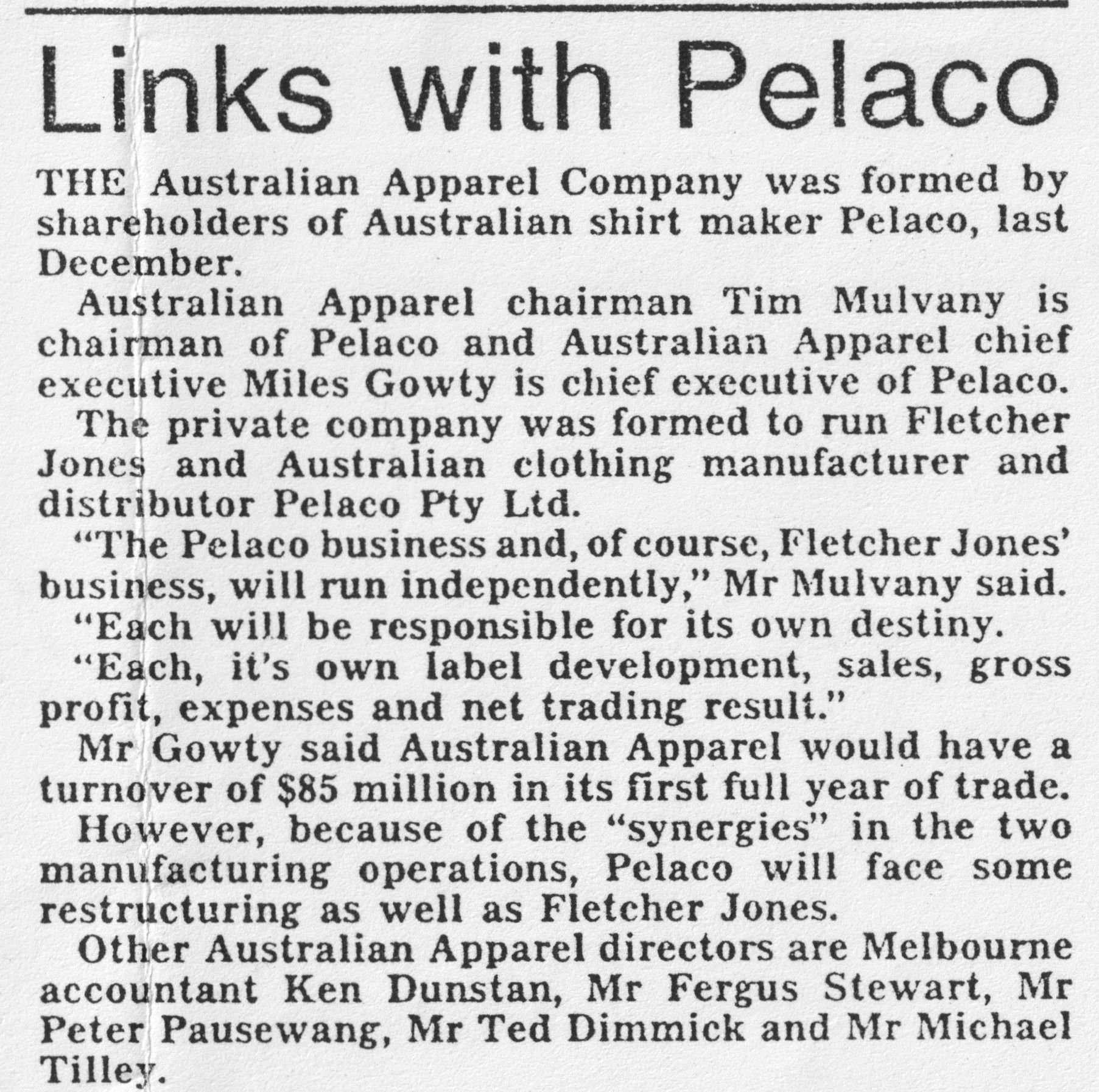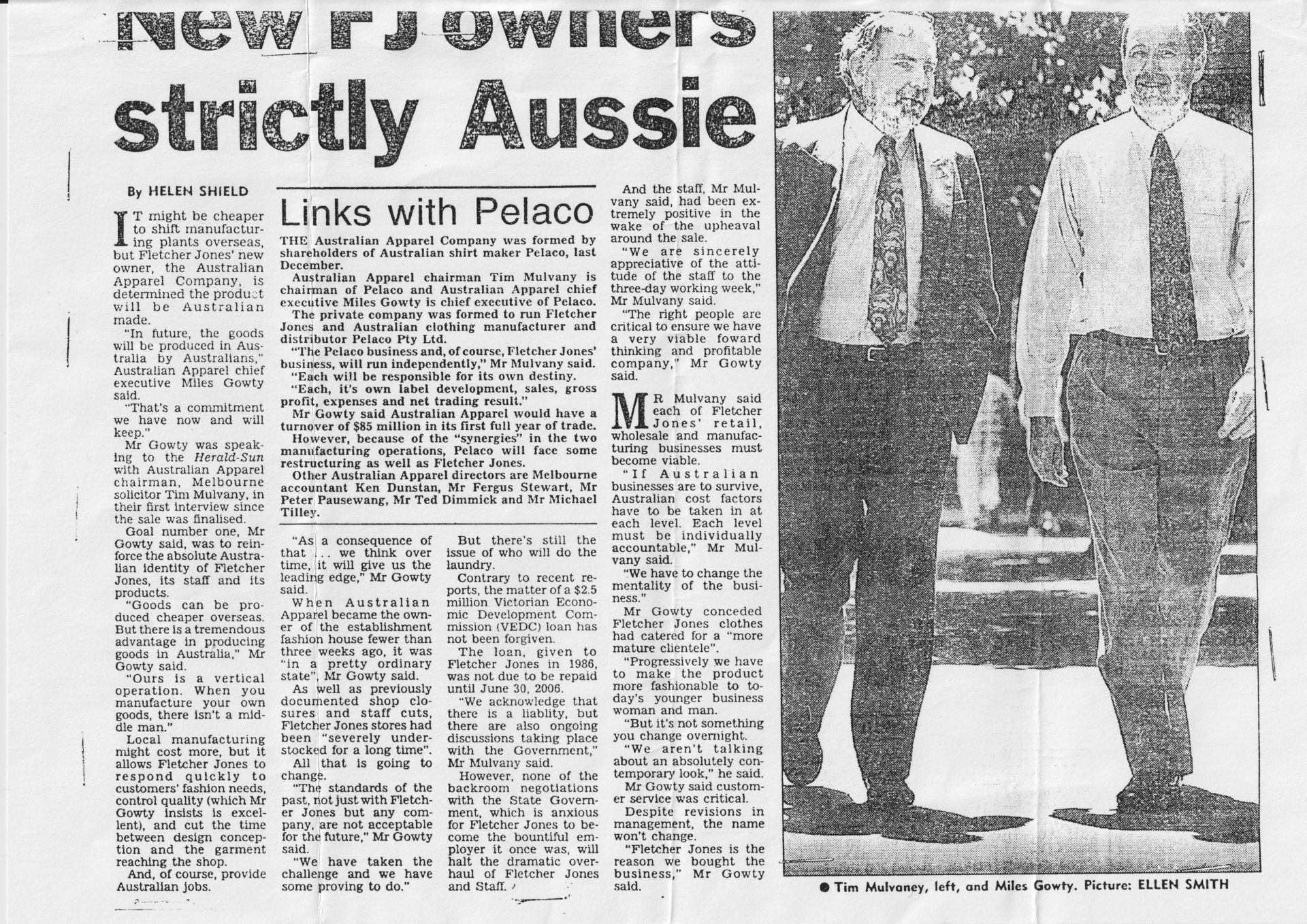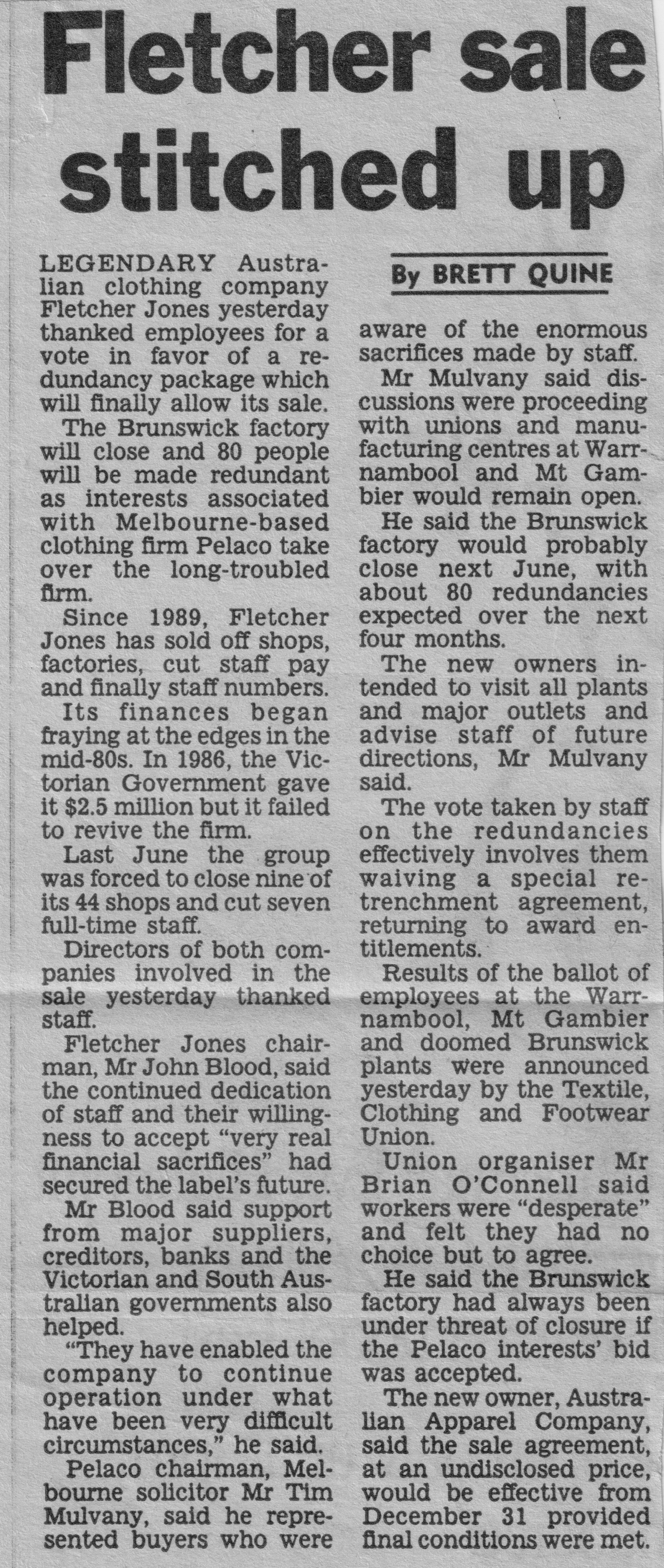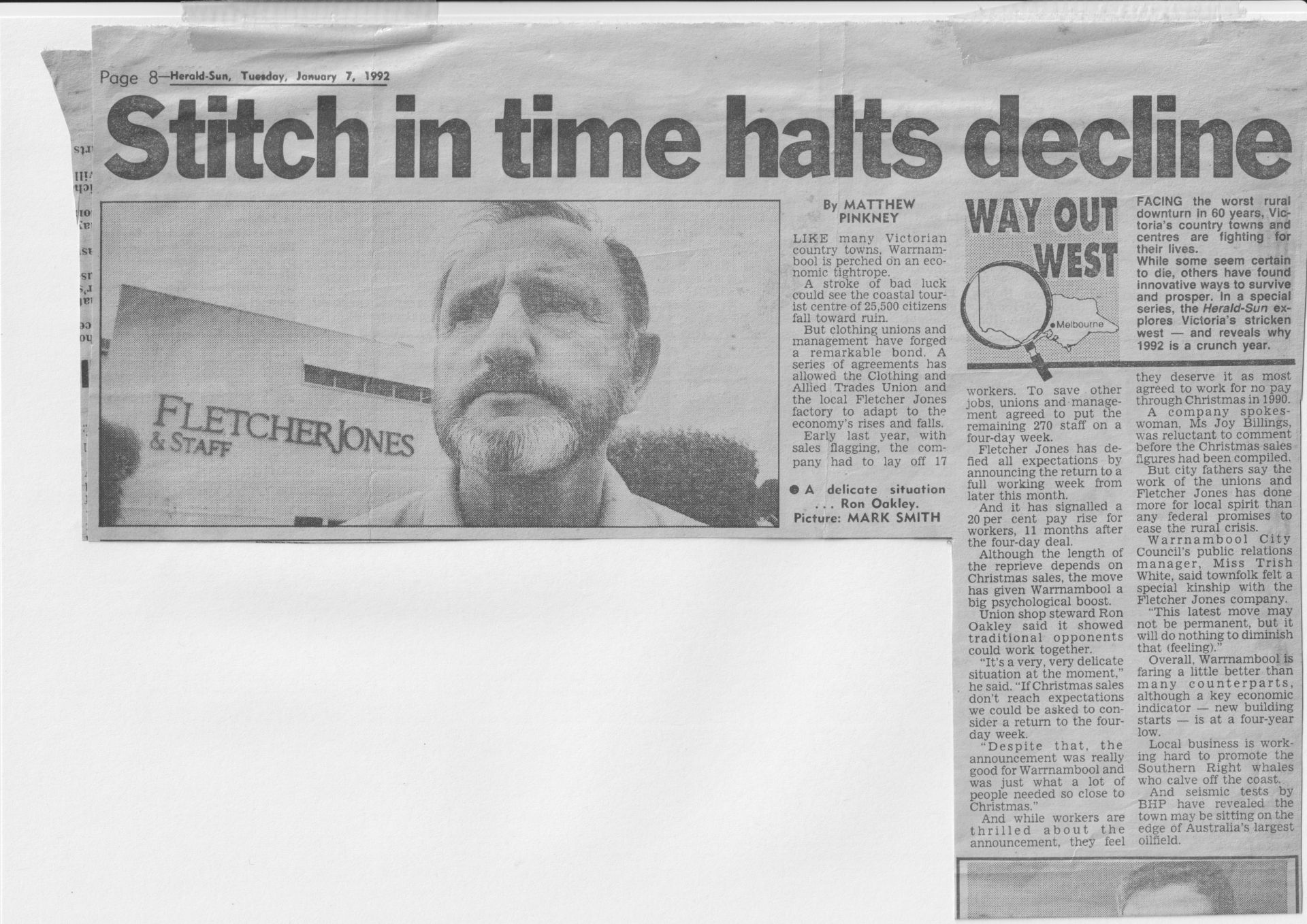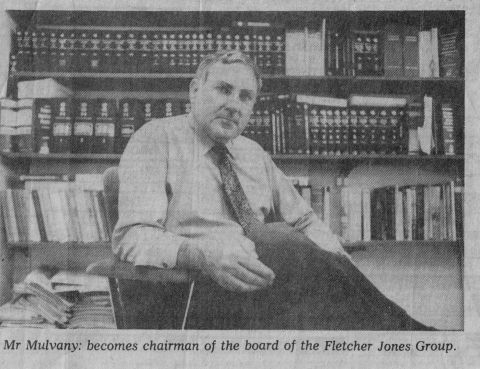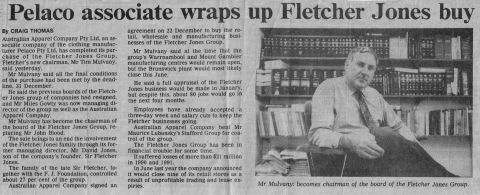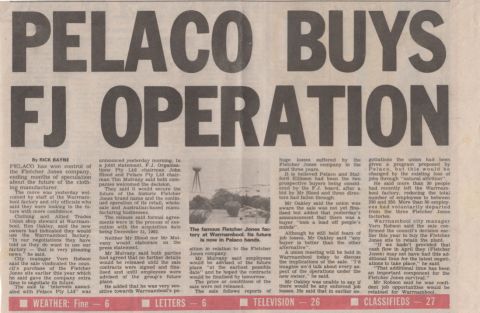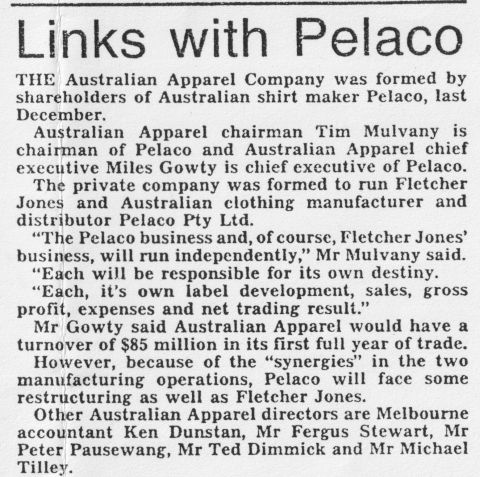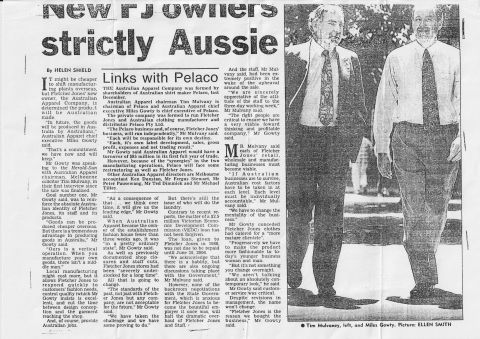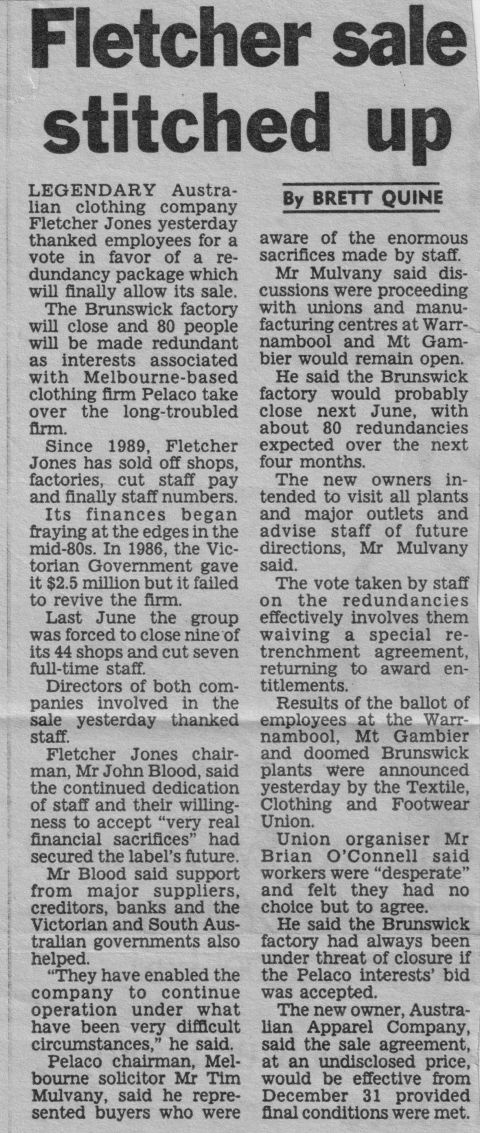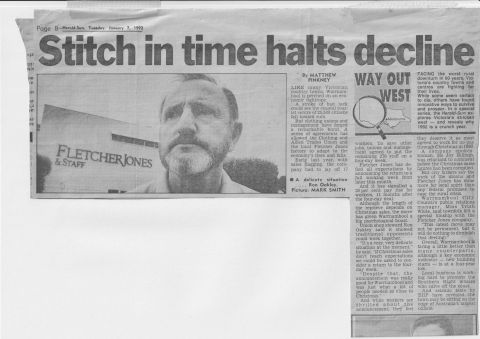By 1992, the FJ company was experiencing serious cash flow problems. Warrnambool City Council had bought the Pleasant Hill site in April and leased it back to the company to preserve the remaining jobs. However, the following month in May, million dollar losses were revealed and nine retail outlets closed.
In December, the FJ company was sold to The Australian Apparel Company which was formed by shareholders of Pelaco. The private company was formed to run Fletcher Jones and Australian clothing manufacturer and distributor Pelcaco Pty Ltd. "The Pelaco business and, of course, Fletcher Jones' business, will run independently" Australian Apparel chairman Tim Mulvany said.
Staff worked four days a week for almost 11 months of 1991 before resuming a full working week in early 1992 but working hours again slumped, this time to three days a week, on October 27, 1992. Fletcher Jones chairman, Mr John Blood said the continued dedication of staff and their willingness to accept "very real financial sacrifices" had secured the label's future. Mr Blood said support from major suppliers, creditors, banks and the Victorian and South Australian governments also helped. "They have enabled the company to continue operation under what have been very difficult circumstances." It was also reported that the Brunswick factory would close by June the following year with 80 people to be made redundant over the coming months.
The sale brought to an end the involvement of the Fletcher Jones family through its former managing director, Mr David Jones, son of the company's founder, Sir Fletcher Jones. The family of the late Sir Fletcher, together with the F.J. Foundation, controlled about 27 percent of the group at sale.
"When I commenced at Fletcher Jones in 1973 as receptionist, we had an industrial chaplain - Mr Donald Longfield. When the personnel department formed, he was involved in developing the FJ drug and alcohol policy, along with the clothing trade union and the company doctor. The chaplains were valuable members of staff and they were available to counsel staff.
In 1992, we were purchased by Pelaco. The Executive Production Manager asked management to reduce total staff by 60 people as we were to move to a more flexible workforce and they said this meant we needed people with multiple skills. The outcome was people who had only one particular skill or people who had any disability, were retrenched - even if they had 40 years of service! It seemed there was no compassion allowed on the day these staff were to leave. It felt to me like people were rounded up like cattle, given their pay and then told to leave the factory. The chaplains were not invited to be in attendance. This was not the way of Fletcher Jones."
Joy Billings worked as receptionist at FJs from 1973-1993
